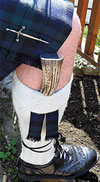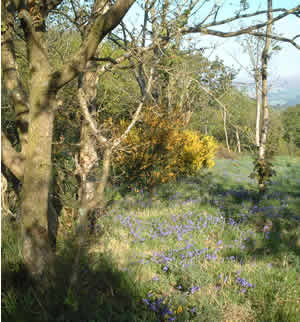
Last week I learnt an interesting Dutch word – klinken – which means to rivet, sound, ring, chime, toll, peal, knell, pledge, clink (glasses), (drink a) toast; to appear to be, seem, sound; and clinking. I particularly like the past tense forms of this word – klonk and geklonken.
Here are some examples of usage:
– die naam klinkt me bekend (in die oren) = that name sounds familiar to me
– dat klinkt mooi = that sounds nice
– het klonk me als muziek in de oren = it was music to my ears
– Waar hebben die woorden eerder geklonken? = Where have I heard those words before?
Here are some similar words and expressions:
– klink = (door)handle; latch
– klinker = brick; vowel
– medeklinker = consonant (also consonant)
– klinken op = to drink a toast to; to drink to; to toast
– laten klinken = to sound
– vals klinken (“to sound false”) = to jangle; to be off/out of key; to be/sound out of tune
– geklingel = jingle
– klingelen = to jingle; tinkle (also tingelen, rinkelen & kletteren)
The word vals in vals klinken can be translated as ‘false’, but also means mischievous, vicious, nasty, malicious and spurious. It can also be combined with spelen (to play) to make vals spelen – to cheat.
The English word clink possibly comes from klinken, and the clink, as a slang word for prison, comes from the prison in Southwark in London called The Clink, the name of which is possibly onomatopoeic and derives from the sound of metal doors being closed, or the rattling of the prisoners’ chains. The English words clonk and clunk are thought to be onomatopoeic in origin, while the word clank might come from the Dutch word klank, which means sound or tone.
What sounds do bells make in other languages?
Sources: bab.la Dictionary, vanDale, dictionary.sensagent.com, SYSTRANet, interglot.com, OED.





